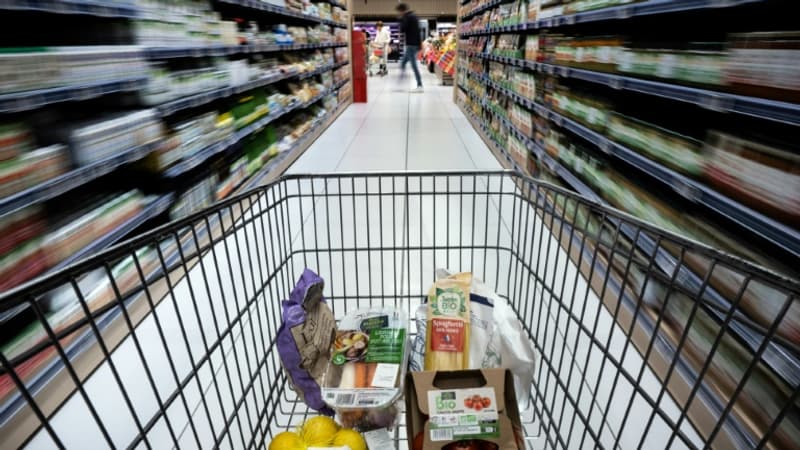After several months of decline, inflation shows a slight jump. From 3.4% in November in one year, the price increase increased again to 3.7% in one year in December, according to provisional data reported this Thursday, January 4, by the National Institute of Statistics and Economic Studies ( INSEE). An increase that is explained by the “acceleration” of energy and services prices.
Energy prices increased by 5.6% year-on-year in December (compared to 3.1% in November) and services prices by 3.1% (compared to 2.8%).
+7.1% for food
Bonne new pour les ménages, les prix de l’alimentation, qui avaient été le principal moteur de l’inflation en 2023, ont en revanche continué à lentir, avec une ausse de 7.1% en décembre (contre 7.7% en November).
But fresh produce prices followed the opposite trend, increasing by 8.8% in December, after 6.6% in November.
Prices of manufactured products slowed to +1.4% in December year-on-year, after +1.9%.
The harmonized consumer price index, which allows European comparisons, also increased in December, up to 4.1% year-on-year, compared to 3.9% in November.
+4.9% forecast for 2023
In December, the Minister of Economy and Finance, Bruno Le Maire, estimated that the inflation crisis caused by the repercussions of Covid and then the war in Ukraine had been “behind” in France, but that the level of inflation would remain “a little back”. higher” than before the crisis, in particular due to the energy transition.
In its latest forecasts published in mid-December, INSEE expects inflation to be 4.9% on average annually in 2023 (compared to 5.2% in 2022) and 2.6% annually next June.
The Banque de France predicted that inflation would reach 5.7% on average annually in 2023 and fall to 2.5% in 2024, measured here according to the harmonized consumer price index (HICP).
Source: BFM TV


